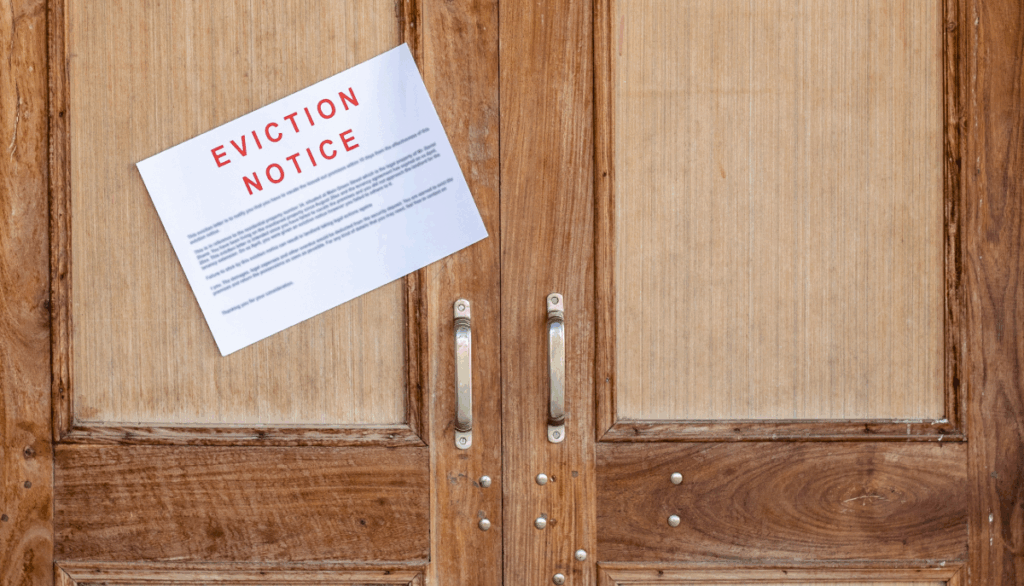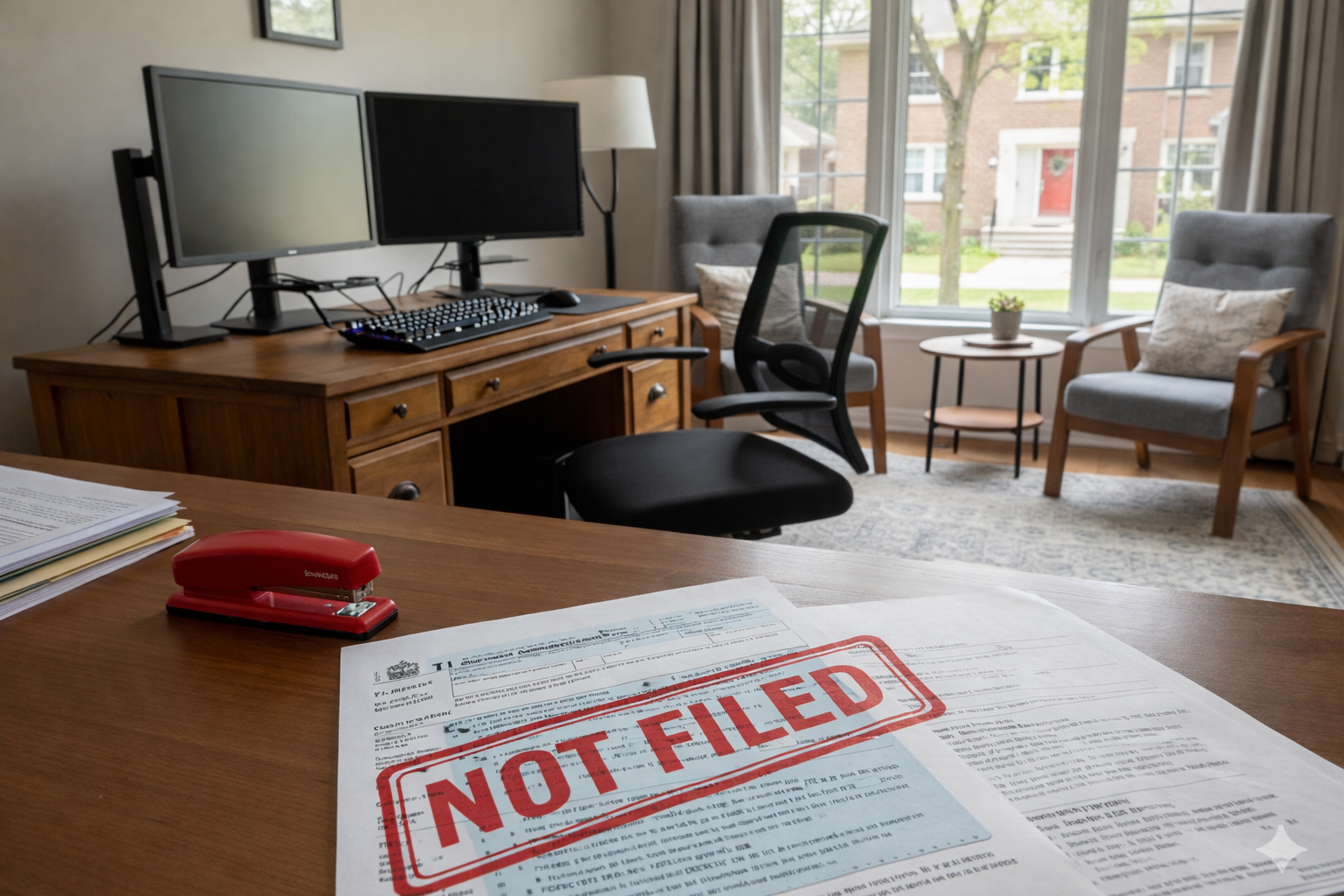In Canada, if you’re wondering how quickly things happen when your in foreclosure, you don’t lose your house overnight. From the first missed payment to a forced sale, the timeline typically spans 3 to 12 months, depending on the lender, the province, and how quickly you act. Multiple legal notices are issued along the way—including a notice of arrears, a demand letter notice, and a notice of sale. There are options to stop foreclosure using home equity, refinancing, or professional assistance. This guide outlines everything Canadian homeowners need to know.
Table of Contents
ToggleUnderstanding the Foreclosure Process in Canada
What is Foreclosure?
Foreclosure is a legal remedy lenders use when a borrower fails to make mortgage payments. It allows them to recover the outstanding balance by selling or repossessing the home.
Power of Sale vs Foreclosure
- Foreclosure (used in Alberta, BC, etc.): Lender goes to court and takes title of the property.
- Power of Sale (used in Ontario): Lender sells the home without taking ownership. Faster and less expensive.
| Feature | Foreclosure | Power of Sale (Ontario) |
|---|---|---|
| Involves Court? | Yes | No |
| Timeline | Longer (up to 12 months) | Faster (3–6 months) |
| Homeowner keeps equity? | Sometimes | Yes, after debts |
| More common in | BC, Alberta | Ontario |
Important to note: Most homeowners in Ontario lose their house through Power of Sale, not foreclosure. Yet both lead to the same result—you lose your house.
Timeline: How Long Until You Lose Your House in Foreclosure?
Day 1–30: Missed Payment
- Lender sends a reminder or late payment notice.
Day 30–90: Notice of Arrears
- A formal notice of arrears is issued.
- You’re asked to catch up within a specific timeframe, typically 30 days.
Day 90–120: Demand Letter
- Lender issues a demand letter requiring full repayment of arrears + legal fees.
- Warning that mortgage enforcement will begin.
Day 120–180: Notice of Sale or Foreclosure Filing
- A notice of sale is sent in Power of Sale provinces.
- In foreclosure provinces, legal proceedings are filed in court.
Key takeaway: From the first missed payment to losing your house, the process can move quickly. Expect action within 3 to 6 months in Ontario and 6 to 12 months in other provinces.
-
✅ Day 1–30: Payment reminder or late fee
-
✅ Day 30–60: Notice of Arrears
-
✅ Day 60–90: Demand Letter
-
✅ Day 90–120: Notice of Sale
-
✅ Day 120+: Home may be listed or sold
Notices You’ll Receive Before Losing Your House
Notice of Arrears
- Details how far behind you are.
- May include penalty interest.
Demand Notice
- Formal request for full repayment.
- Often a precursor to legal action.
Notice of Sale (Power of Sale)
- Gives you a redemption period (usually 35–45 days).
- After this, the lender can list your home for sale.
Common myth: One missed payment doesn’t mean instant foreclosure. Lenders follow a structured notice process.
How Mortgage Enforcement Works in Ontario
Power of Sale Process
- Begins after a demand letter and notice of sale are issued.
- The demand letter is typically sent by the mortgage lender or their legal representative, often a lawyer or collections department acting on the lender’s behalf.
- This letter must be served properly, either by registered mail, courier, or in person, and it must clearly state the total amount owing (including arrears, legal fees, and penalties).
- The letter also serves as formal notice that the lender intends to enforce the mortgage if the debt isn’t paid in full by a specific deadline.
- After service, if the homeowner does not comply, the notice of sale follows, and the power of sale process begins.
- No court approval is required to start in Ontario, which allows lenders to proceed faster than in provinces that use traditional foreclosure.
Redemption Period
- The homeowner has about 35–45 days to pay up or refinance.
- If not resolved, the lender tries to sell the property.
Eviction and Sale
- Once the redemption period ends and the lender proceeds with the sale, a real estate agent is typically hired by the lender or the lender’s legal representative to list and sell the property.
- The agent is chosen for their market expertise and is expected to secure fair market value under the supervision of the lender’s legal counsel.
- During this period, the property is often placed under property management care, ensuring it’s secured, maintained, and ready for showings or inspections.
- Once sold, any leftover proceeds (after debts/fees) are returned to the homeowner.
- If the sale doesn’t cover the debt, you may still owe the difference.
Important to note: Legal fees, interest, and enforcement costs add up quickly and reduce your equity.

What You Can Do to Avoid Losing Your House
Contact Your Lender Immediately
- Reach out to your lender or mortgage servicer as soon as a payment is missed.
- Ask for temporary relief options such as a mortgage payment deferral, interest-only payments, or a customized payment arrangement.
- Be ready to explain your financial hardship and provide any required documentation, such as proof of income loss, medical bills, or layoff notices.
Use Home Equity to Refinance
- If you have sufficient equity, consider refinancing with a second mortgage or home equity loan—even with bad credit.
- Contact a mortgage broker who specializes in private lenders or alternative financing to assess your eligibility.
- Funds from this new loan can be used to pay off arrears, reinstate your mortgage, and avoid further enforcement.
Work with a Mortgage Professional
- A mortgage specialist can help review your full financial picture, assess your property’s equity, and connect you with the right lenders fast.
- They can help package your application, negotiate with lenders, and explain your legal timelines to act before eviction becomes imminent.
Key takeaway: Acting quickly gives you more leverage and more options. Waiting could result in fewer choices and higher costs.
Scenario: Stopping Foreclosure With Equity
Meghan from Mississauga missed two mortgage payments after losing her job. She received a notice of arrears, then a demand letter. By the time the notice of sale arrived, Meghan was 4 months behind. With only 30 days left before the home would be listed, she used her home equity to secure a private second mortgage. This paid off her arrears and bought her time to find new employment and refinance later.
How Foreclosure Affects Your Credit Score
When a homeowner begins missing mortgage payments, the financial impact goes beyond the property itself. Most mortgage lenders in Canada report to credit bureaus such as Equifax and TransUnion. Missed payments—especially those that progress into mortgage enforcement—can seriously damage your credit profile.
In the short term, even one or two missed payments can drop your credit score by dozens of points, making it harder to qualify for traditional loans. If the situation progresses to a notice of sale or foreclosure proceeding, the mortgage enforcement action will also be reported. This stays on your credit report for 6 to 7 years, significantly affecting your ability to borrow, refinance, or get approved for credit cards and other financial products.
Rebuilding your credit after a foreclosure is possible but takes time, consistent repayment behaviour, and strategic credit use.
Final Thoughts: Time Is Short, But You Still Have Options
Losing your house in foreclosure doesn’t happen overnight, but the clock starts ticking after the first missed payment. Lenders follow a legal sequence of notices, and the entire process can happen within a few months. The earlier you reach out to professionals or explore refinancing using your equity, the better chance you have of saving your home.
Don’t wait for the notice of sale. Call a mortgage expert the moment things start to fall behind.
FAQs
Q: How many missed payments before foreclosure in Canada?
A: Usually 2 or more. A notice of arrears is often sent after the second missed payment.
Q: What’s the difference between foreclosure and power of sale?
A: Foreclosure involves the court and transfers the property title to the lender. Power of sale limits the amount of court interaction and lets lenders sell the property directly.
Q: Can I stop foreclosure after it starts?
A: Yes. During the redemption period, you can repay or refinance to stop the process.
Q: Does foreclosure ruin your credit?
A: Yes. A foreclosure or power of sale will severely damage your credit for up to 6–7 years.
Q: Can I stay in the home during foreclosure?
A: Yes, but only until the redemption period ends. After that, you may face eviction.
- Shocking Reasons Your Mortgage Company Could Cancel or Call Your Mortgage - January 24, 2026
- Costly and Important Facts About a Writ of Execution: What It Means and How to Clear It - January 22, 2026
- 7 Great Ways to Reduce Your Mortgage Payments Without Sacrificing Your Goals - January 19, 2026






